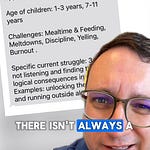Let’s talk about something I see all the time in clinic: preschoolers with wheezing, coughing, or breathing issues that just keep getting brushed off.
Sometimes they’re told it’s just “reactive airway disease.” Sometimes they get an albuterol inhaler and no follow-up. Sometimes they’re told, “We can’t diagnose asthma until age six.”
None of that is true. In fact, it’s outdated, and honestly? Harmful.
We now know that undiagnosed and untreated asthma in toddlers can actually change the structure of their lungs—leading to lifelong issues with breathing. Kids who wheeze regularly in early childhood are more likely to have reduced lung function by age 6… and that reduction sticks around into adulthood.
That’s why I want to say this clearly:
If your child is having repeated episodes of coughing, wheezing, or noisy breathing, they might have asthma—and it’s worth finding out.
What does asthma look like in little kids?
Everyone pictures asthma testing as deep breath in and out into a spirometer…so you might think we can’t diagnose asthma without those lung function tests. But here’s the thing: we don’t need spirometry to diagnose asthma in preschoolers.
Instead, we look at symptoms:
Recurring coughing or wheezing (especially at night or with illness)
Audible, musical-sounding breathing (especially when breathing out)
Improvement with medications like albuterol or oral steroids
When a child gets better with asthma medications, that’s our clue. That’s the reversibility. And it’s a key part of making the diagnosis—even in a toddler.
“But isn’t it just a virus?”
I get it. RSV, colds, and bronchiolitis are common in this age group, and they can look a lot like asthma. But here’s the difference:
Kids with asthma get better with asthma meds.
Kids with viral infections (like RSV) generally don’t improve much with albuterol or steroids—they just get better on their own with time.
If your child consistently improves when using these meds, it’s time to stop saying “reactive airway” and start treating the real issue.
So what should we do?
If your child shows signs of asthma, we start with what’s called a therapeutic trial:
→ Using a daily inhaled steroid (via spacer or mask) to calm airway inflammation
→ Monitoring for improvement in cough, wheezing, and nighttime symptoms
These daily steroids aren’t the same as oral steroids— they have the benefits of protecting from flairs without the side effects and roid rage of oral steroids. They reduce sensitivity and prevent flare-ups. Our goal is to keep your child out of urgent care, off antibiotics, and enjoying life like a preschooler should.
Our approach at Frontier
We don’t over-diagnose or over-medicate. But we do take asthma seriously—because if we wait, we miss a window of time that can affect your child’s lung health for decades.
We’re here to help whether your child is 2 or 12. And if you're in Nebraska and wondering if your child might have asthma—or dealing with allergies that are making things worse—we’d love to help.
👉 Check out our Asthma & Allergy Clinic
We welcome both members and non-members of our practice because breathing better should be something every kid gets to do.













Share this post